Question for Our Hotel Marketing Expert Panel
How will business traveller behaviours change this year? What advice can you share on marketing messages for hybrid stays / workcation / bleisure offers? (Question proposed by Susanne Williams)
Industry Expert Panel
Our Industry Expert Panel exists out of professionals within the hospitality & travel Industry. They have comprehensive and detailed knowledge, experience in practice or management and are forward-thinking. They are answering questions about the state of the industry. They share their insights on topics like revenue management, marketing, operations, technology and discuss the latest trends.
Our Marketing Expert Panel
- Daphne Beers – Owner, Your-Q Hospitality Academy
- Adele Gutman – Culture and Guest Experience Expert, Hospitality Reputation Marketing Podcast
- Tamie Matthews – Revenue, Sales & Marketing Consultant, RevenYou
- Moriya Rockman – Chief of Marketing, Smiling House Luxury Global
- Reshan Jayamanne – Digital Marketing & Sales Strategist, Bnb Optimized
- Nicole Sideris – Founder & Prinicipal Consultant, X Hospitality
- Luminita Mardale – Director Of Marketing And Business Development, Vienna House
- Max Starkov – Adjunct Professor Hospitality Technology, New York University
- Grazia Dell’Aquila – Hospitality Consultant, IAMGRAZIA
- Jacopo Focaroli – CEO & Founder, The Host
- Linda Bekoe – CEO, APLBC
- Sarah Dandashy – Travel & Hospitality Expert, Ask a Concierge
- Ask Our Panel a Question
- Join Our Expert Panel
“People will be more and more conscious of their travel and the footprint they leave with it. Therefore I believe this is a growing market where people will combine travels and maybe choose alternative ways of traveling (instead of flying). For example, staycations have been very popular, where people rediscover their own country or environment.
The first step is to (re)define your brand purpose. Your story, message, target audience and vision should all be aligned. This also means you have to CHOOSE (you can not focus on every segment). Get aligned and stay aligned. The most important step in this is to be genuine and purpose-driven. This will attract the right guests.
If you go for hybrid/conscious travel etc., you have to live it yourself as a company too! Leading by example can be a strong message for your potential guests.”
“To accommodate work/life balance and bleisure, brands would be smart to support properties with affordable ideas to help hotels retrofit the designs of legacy breakfast and common spaces that better fit and delight families. The pressure to accommodate more people per room than the hotel was designed for is adding to the stress on the building and staff members. Waiting for elevators or waiting for a table may seem like a small irritant, but our goal must be to provide a frictionless experience, and adapt to the new traveler expectations in a positive way, rather than by simply degrading service.
For new properties, I would recommend that the hotel should be able to attract a variety of business types, not just business or not just leisure, because we never want to find that we’ve put all our eggs in one basket when one business type dries up due to circumstances outside of our control. If you want guests to love your business and return, recommend, and review your property highly, design with thoughtfulness and love for people, because we still crave our comforts and experiences no matter why we travel.”
“My crystal ball is on the fritz right now, but if I were to take a guess, I would say that as an industry, we have the following options:
- Corporate length of stay will extend. Travellers will be more conscious of the purpose of travel and will constantly question “could this meeting be a zoom call” or “how do I get value for money out of this trip”. They will not visit for only one meeting; they will add more to their itinerary and stay longer. We must tell these longer-stay customers that we offer the comfort of a “home away from home”, e.g., kitchenette, laundry and versatility.
- The lines between leisure and business travel will continue to blur. We have shown that we can now work from anywhere and be just as productive. Adding an extra night or two at one’s own expense in a different location will become more common, but we, as an industry, must ensure we are marketing the flexibility of our rooms. Showing the workspace, the view from the desk, the high-speed wifi, the experiences to be had around the hotel and what is available outside office hours will be a must.
- Meetings and events will change. I predict that what was once a 1-day training session will become a week as managers combine team building with awards ceremonies and training sessions. Hotels must show potential buyers that they offer more, e.g., the opportunity to meet, play, bond and learn.
- Corporate rates will change. Many people have moved regionally and they will be forced back into offices once or twice a week. They will be travelling into the city and will want to stay somewhere familiar each week. They won’t want to be trawling the internet every week looking for somewhere to sleep. Work with individuals to cultivate loyalty via a special rate just for them.
Our customers are changing and so must we. We must speak to our clients directly to find out what made them choose us and then cultivate the marketing message.”
“At Smiling House we deal less with coprorate travel, but very much (and more and more) with workation and Bleisure stays. We recognise the workation trend as one of the biggest trends that is re-designing the travel world. As the way people work has changed tremendously, many are working from home and embracing the idea of doing it as they travel.
The workation travellers have different expectations, with an average stay of 3 months and more, and in the vacation rental industry, these guests need to enjoy and use the property as their home and office for a long period of time. Vacation homes that want to make the most of this huge trend need to make sure to take the property to the highest level of comfort and dedicate one room for work-only.
High internet speed and a fully equipped kitchen are a must. The marketing message should be focusing on family togetherness in a lifetime experience, focusing on the views and the home office.”
“We’re already seeing this take place. As businesses shift to ‘work from home policies’, more people will realize that they can simply take a 5-day weekend and work from home at a unique location without actually taking annual leave. You will see guests work from 9-5 from an Airbnb or hotel and enjoy the local nightlife, spa or buffet on weekdays as work from home policies allow more freedom to employees.
From a marketing perspective, you want to attract these guests, as they will be more likely to keep booking with you IF you take care of them with the utmost care. When communicating to these guests, you want to do two things:
- Paint the image in their mind. Through imagery, show what it would be like to work from your location. You may even want to create a unique package whereby you are helping them with a better offer than booking elsewhere.
- Speak to their needs. Interstate or international business travelers have different needs compared to someone who wants to travel in their own city and experience some luxury while ‘working from home’. Find out the needs of your market and fulfil them. Ask if you need to, as this will soon become a very powerful strategy to attract more ‘staycation’ guests in case we ever go into another global pandemic.
For locations that have been really affected by the pandemic, I believe this is the single most important shift you need to take note of and cater to in the coming 6-12 months.”
“International travel inbound will slowly return, but the reliance will remain domestically. Corporate travel has extended beyond 1.6 nights to 3, as there is no rush to get back to an office when business can still be conducted remotely. Corporate stays are being extended to workcation or bleisure with a significant increase in Sunday nights. Many corporates have eliminated outsourcing their travel management and are conducting travel in-house. Given this, hotels are disconnecting the GDS as it is a costly channel; production is not there as corporates are affiliating themselves with OTA corporate travel such as Egencia.”
“Since the pandemic started we’ve noticed a significant decrease in business travelers. The majority of companies prefer to offer work from home programs and they’ve realized that people are working more efficient from home. The need for direct communication is increasingly accentuated and if people have felt the need for isolation during the pandemic, they now want to communicate directly and travel.
Starting in February, although the scenarios were pessimistic regarding business trips, we noticed a growing demand from companies, both for accommodation and for conference rooms. I believe that as the international restrictions will be lifted, as we see happening already, guests will want to have face-to-face meetings and return to the office. As hoteliers, we must emphasize the safety and security measures we implement, e.g., keeping social distancing in conference rooms, the permanent disinfection of surfaces, etc.”
“Unmanaged business travel will be back with a vengeance in 2022! Most of the unmanaged business travelers exhibit behavior similar to leisure travelers: they shop around like crazy and they could easily book via an OTA website if they find a lower rate there. This is why hoteliers must maintain rate discipline and re-learn how to sell on value Vs selling on rate alone.
Come up with offerings that appealing to this audience – for example:
- Executive Traveler Packages including upgrades to Executive Rooms or Suites, comfortable business amenities (desk, lighting, etc.), free high-speed internet, free breakfast, free access to gym, happy hour, etc.
- Work-from-hotel packages for day use of the hotel accommodations in combination with coffee and snacks, business amenities and conveniences.
- Digital Nomad Extended Stay Packages, featuring monthly rates, high-speed internet, kitchenettes or access to kitchen facilities, food delivery, happy hours and social lounges, etc. There are over 15.5 million digital nomads in the U.S. alone, many more in Europe and APAC. These young, unattached working professionals are accustomed to working remotely from anywhere around the country (or the world) as long as the price is right, and there is fun and conveniences.”
“The pandemic has created a huge change in travel trends. Since companies have switched to hybrid ways of working, more employees are looking for remote working options and co-working spaces. Therefore hotels must offer services that will target those business travellers, for example, facilitating meetings in the hotel’s lobby, bar(s) and restaurant(s), combining remote with on-site work.
Let’s not forget about the digital nomads / remote workers who like to travel and enjoy the lifestyle while looking for hotels offering amenities such as in-room kitchenettes and meal plans to suit their requests.
The spread of smart-working has created a new ecosystem that includes the bleisure trend (a combination of ‘business’ and ‘leisure’ time) and the workation trend, i.e., the possibility of working remotely in a holiday resort. These groups of travellers are going to look for smart services that will help them to make the most of their time.
To attract workation, bleisure and hybrid travellers, the main focus for the marketing messages must be on technology, informing them that the hotel can provide smart rooms and wellness facilities to enable guests to focus on work while also enjoying unique, healthy experiences.
Other marketing messages should be related to the ways in which people interact with their health, their daily lives and away from the stress of work. Offering wellness coaching in mindfulness, meditation and yoga to help people to fight that stress could be an interesting option.
A video marketing strategy in virtual reality (VR) could also work well with bleisure travellers, opening up the hotel to a wider audience who are researching travel options and exploring the hotels they want to stay in.”
“The “work from anywhere” crowd, “bleisure”, workcation, and long-stay rentals are thriving now more than ever. They branch out in different subcategories per age, occupation, type of business and the purpose of business stays.
Therefore, we must stress there’s quite a difference between the needs of a digital millennial nomad and a senior executive manager piling up night credits. While I’m seeing the future of the latter segment in a deadlock, the high net worth remote market can be attracted by weekly-monthly stays in hybrid co-living/working hotels. These types of accommodations could potentially tackle seasonality through, for example, providing a wider tailor-made service to compete against Airbnb’s cost-effective basic options.
Avoiding a catch-all short-term strategy is paramount: the better we track traveller behaviours, the more we can have a bigger picture of new trends, what remains of the old trends, compare them, and fine-tune our response.”
“Guest experience will be key moving forward for both corporate and leisure guests. We need to think of ways to enhance this experience – i.e., we are not just selling rooms, but a complete experience. For example, working with locals to create a better offering for guests.
Additionally, sustainability is top of the agenda for everyone and we need to find an effective way to communicate to our guests. It’s important that they are aware of our efforts around sustainability and that it is at the heart of our offering.
As hoteliers, the biggest mistake we’re making is that we are already doing a lot around sustainability, but we are not communicating this to our guests. We need to start small and tackle this as a long-term strategy.”
“Business travel is picking back up, therefore bleisure travel is making a comeback. This segment should absolutely be catered to. Consider offering reduced rates or incentives for those adding on days to business stays, or stays that go into the weekend, as well as longer stays to promote properties that are ideal for workcations.”
Ask a Question & Join Our Expert Panel
Would you like a question to be answered by our Industry Expert Panel? Or would you like to join our community of experts and share your experience, insights, and knowledge with fellow industry professionals? Via the buttons below you can submit a question or submit a request to become part of our expert panel.
More Tips to Grow Your Business
Revfine.com is the leading knowledge platform for the hospitality and travel industry. Professionals use our insights, strategies, and actionable tips to get inspired, optimize revenue, innovate processes, and improve customer experience.Explore expert advice on management, marketing, revenue management, operations, software, and technology in our dedicated Hotel, Hospitality, and Travel & Tourism categories.







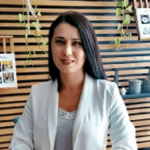





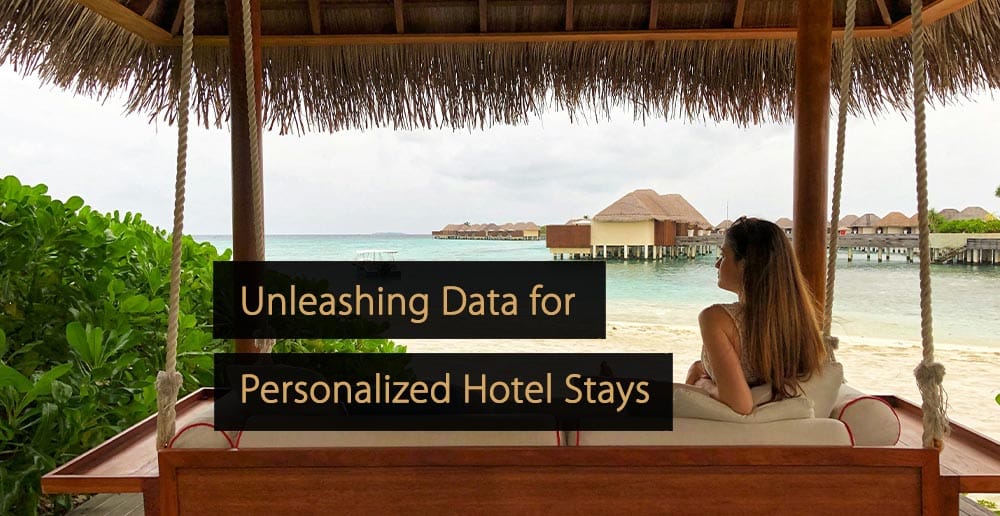
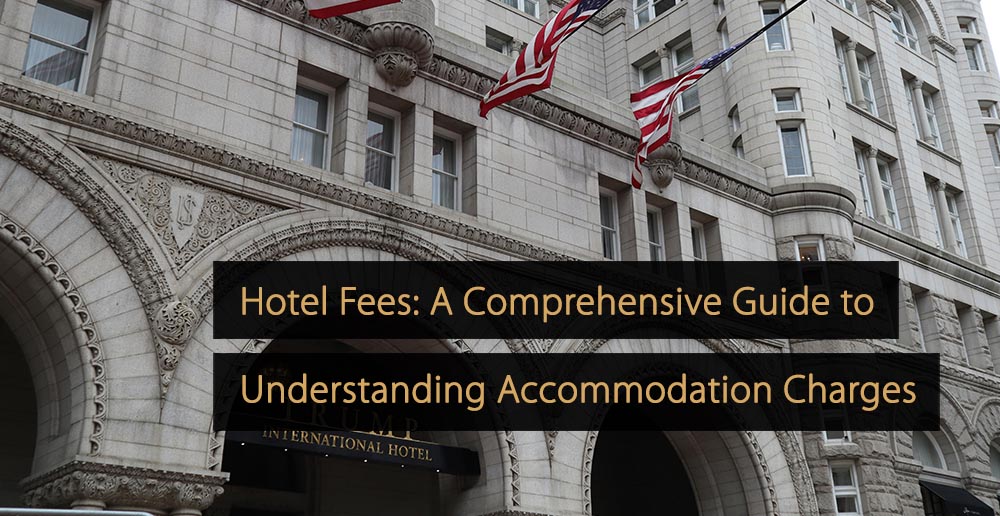
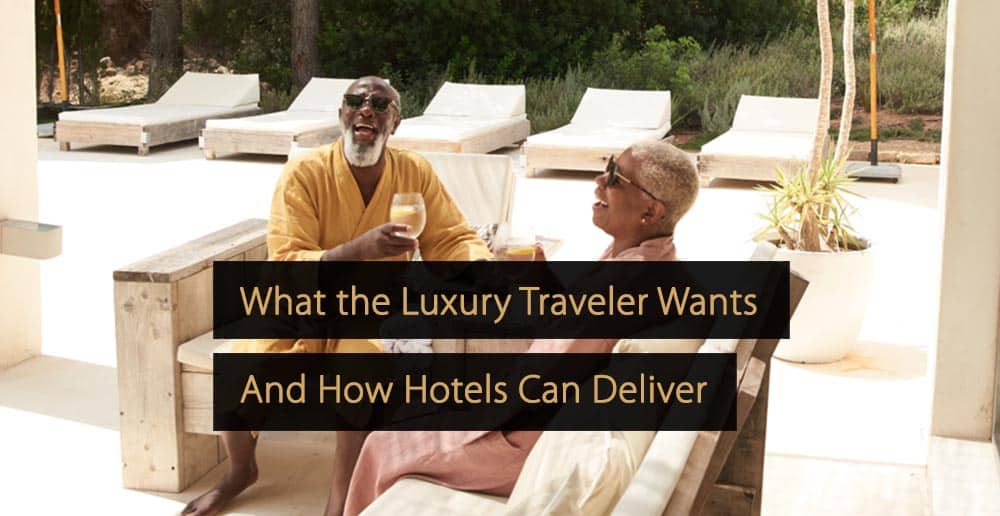

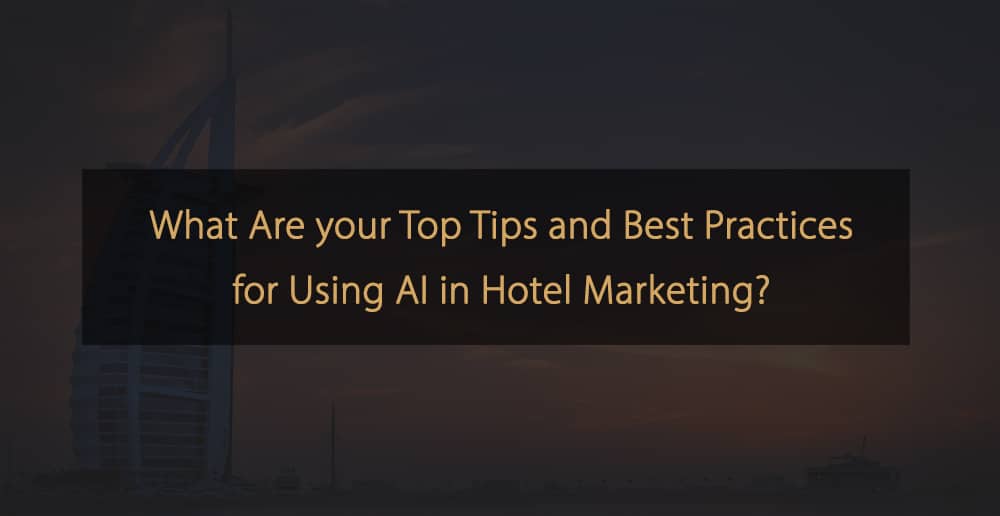
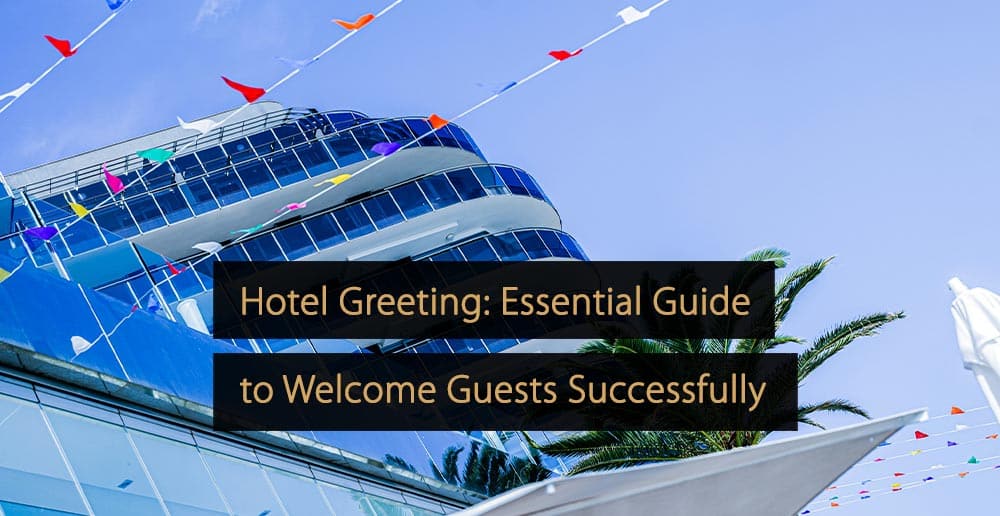
Leave A Comment